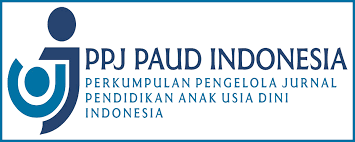PENGASUHAN ANAK USIA DINI DI ERA NEW NORMAL PERSPEKTIF ISLAM
DOI:
https://doi.org/10.33474/thufuli.v2i2.8966Abstract
Early childhood activities in the new normal era change all habits in fulfilling children's rights which are usually done on normal days. Caring for children in the new normal era not only provides a sense of comfort and avoids children from deviant behavior, but parents are required to pay attention to children's health and safety activities so that they avoid exposure to viruses. The purpose of this study is to describe how Islam manages parents in raising children in the new normal era. The research method uses a literature study. The results showed that Islam regulates that in parenting children must involve the scope of faith, morals, worship, and muamalah. Parenting patterns are adjusted to the child's developmental stages. Caring for children in the new normal era is also carried out by providing programmed and continuous guidance as well as mentoring children at home so that children continue to get learning and children have strong characters, namely having praiseworthy behavior and having morals.
References
Anwar, R. N., & Cristanti, Y. D. (2019). Peran Pendidikan Anak Perempuan Dalam Membentuk Masyarakat Madani. Jurnal Care, 6(2), 11–18.
Anwar, R. N., Wardani, L. A., & Vitriana, U. (2019). Pengelolaan Masjid Kampus Sebagai Pusat Pendidikan Islam dalam Pembentukan Karakter Mahasiswa di Universitas PGRI Madiun. Tarlim: Jurnal Pendidikan Agama Islam, 2(2), 135–140.
Ayun, Q. (2016). Dalam Membentuk Perkembangan Kepribadian Anak: Perspektif Psikologi Perkembangan Islam. Attarbiyah, 26, 91–118. https://doi.org/10.18326/attarbiyah.v26.91-118
Clark, H., Coll-Seck, A. M., Banerjee, A., Peterson, S., Dalglish, S. L., Ameratunga, S., … Costello, A. (2020). A Future for the World’s Children? A WHO–UNICEF–Lancet Commission. The Lancet, 395(10224), 605–658. https://doi.org/10.1016/S0140-6736(19)32540-1
Hanafi, I. (2018). Perkembangan Manusia Dalam Tinjauan Psikologi Dan Alquran. IQ (Ilmu Al-Qur’an): Jurnal Pendidikan Islam, 1(1), 84–99.
Juliani, P. (2012). Pola Asuh Dan Karakter Anak Dalam Perspektif Islam. Prosiding Seminar Nasional Psikologi Islam, 47–51.
Khusni, M. F. (2018). Fase Perkembangan Anak Dan Pola Pembinaannya Dalam Perspektif Islam. Martabat: Jurnal Perempuan Dan Anak, 2(2). https://doi.org/10.21274/martabat.2018.2.2.361-382
Ludvigsson, J. F. (2020). Systematic review of COVID-19 in children shows milder cases and a better prognosis than adults. Acta Paediatrica, International Journal of Paediatrics, 0–3. https://doi.org/10.1111/apa.15270
Muhammad Fu’ad Abdul. (2010). Buku Kumpulan Hadits Shahih Bukhari Dan Muslim. Jawa Tengah: Insan Kamil.
Padjirin. (2016). Pola Asuh Anak dalam Perspektif Pendidikan Islam. Intelektualita, 5, 1–14.
Setiawan, S. (2017). Pengaruh Bentuk Pola Asuh Orang Tua Dan Regulasi Diri Terhadap Disiplin Siswa (SMP 17 Agustus 1945 Samarinda). Ejournal.Psikologi. Isip-Unmul.Ac.Id, 5(2), 310–319.
Tirto.id. (2020). Arti New Normal Indonesia: Tatanan Baru Beradaptasi dengan COVID-19. https://tirto.id/fDB3.
UNICEF. (2020). Covid-19 dan Anak-Anak di Indonesia. Retrieved from www.unicef.org






